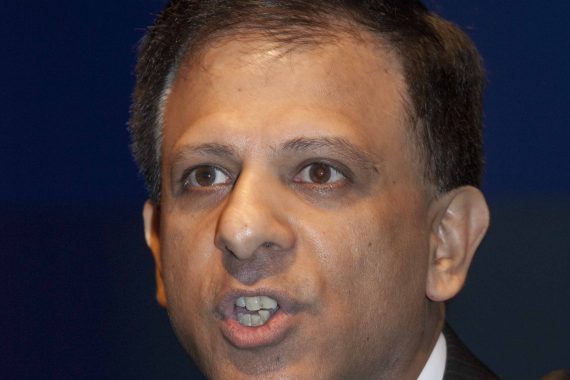BMA votes to resist plans for a non-urgent seven-day NHS service

The BMA has voted to resist the Government’s plans for a non-urgent seven-day NHS service, including routine GP appointments on weekends, on the basis that the NHS cannot afford it.
Speaking at the BMA’s Annual Representatives Meeting (ARM) today, GPC chair Dr Chaand Nagpaul said ‘no country’ could afford a tax-funded routine seven-day service.
The discussion saw the BMA vote through two motions against the Government’s seven-day plans – which also featured in the junior doctor contract dispute.
Coming after health secretary Jeremy Hunt’s claims of a ‘weekend effect’ on hospital mortality leading to more deaths, the first motion ‘condemned’ politicians’ ‘misinterpretation’ of data and demanded that the Government take an ‘evidence-based’ approach to its seven-day policy.
The second motion said it was ‘impossible to deliver routine non-urgent seven-day services across primary and secondary care, within the current five day financial resources and workforce’ and called on the Government to ‘publish a fully funded model for how it will deliver on its manifesto commitment for a seven-day service’.
In the debate, Dr Nagpaul said: ‘Let’s remember no country in the world can afford a tax-funded routine seven day service and I reject political claims that the public expect this.’
Dr Nagpaul added: ‘If our patients were explicitly told the truth that we’re the at lowest rung of healthcare spend in the developed world with dangerously low levels of GPs I’m convinced they would want us to use scant resources morally for the illest in society and it’s incumbent upon us as the BMA to vigorously communicate this to the population.’
He argued that routing seven-day access was negatively impacting on out-of-hours services, with one service in Norfolk having only having one GP cover for 850,000 patients, as Pulse reported.
Dr Nagpaul said: ‘GPC’s position is that the priority must be to use our scarce GP resources to ensure a properly funded seven-day urgent care service, that is what will ensure acutely ill patients can receive responsive GP care to reduce hospital attendances, not by diverting GPs to provide routine diabetic checks on a Sunday.’
Mr Hunt has said he will push ahead with routine GP appointments on a Sunday despite the Health Committee’s primary care report recommending the Government’s approach should be evidence based and avoid unintended consequences such as damaging weekday services, continuity of care or existing urgent out-of-hours primary care services.
A new study on the effects of the Prime Minister’s seven-day GP pilots, published on Friday, showed that they have led to significant reductions in the number of A&E attendances and admissions, but might be most effective in ‘strategically located surgeries’.
The passed motions in full
Motion by THE AGENDA COMMITTEE (MOTION TO BE PROPOSED BY THE SALISBURY DIVISION): That this meeting, with respect to seven day urgent and emergency services:
i) condemns the persistent misinterpretation by politicians of data on morbidity adjusted hospital mortality, by day of week;
ii) demands that the Government should be evidence based in its approach.
Motion by THE AGENDA COMMITTEE (MOTION TO BE PROPOSED BY THE WEST MIDLANDS REGIONAL COUNCIL): That this meeting:
i) is unequivocal in its support for patients having access to the same high standard of urgent and emergency care throughout the week;
ii) believes that it is impossible to deliver routine non-urgent seven-day services across primary and secondary care, within the current five day financial resources and workforce;
iii) calls on the Government, to publish a fully funded model for how it will deliver on its manifesto commitment for a seven day service.
Source: BMA









